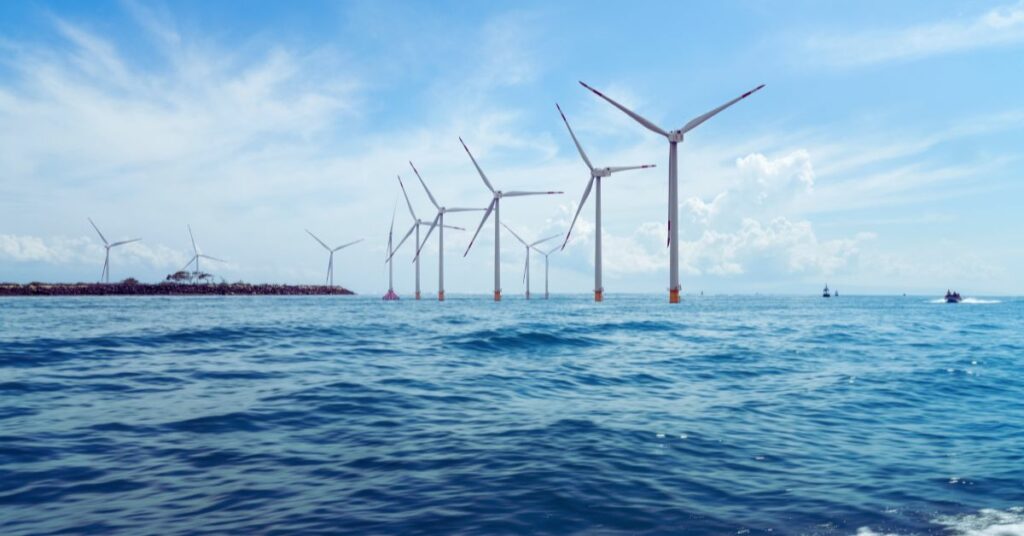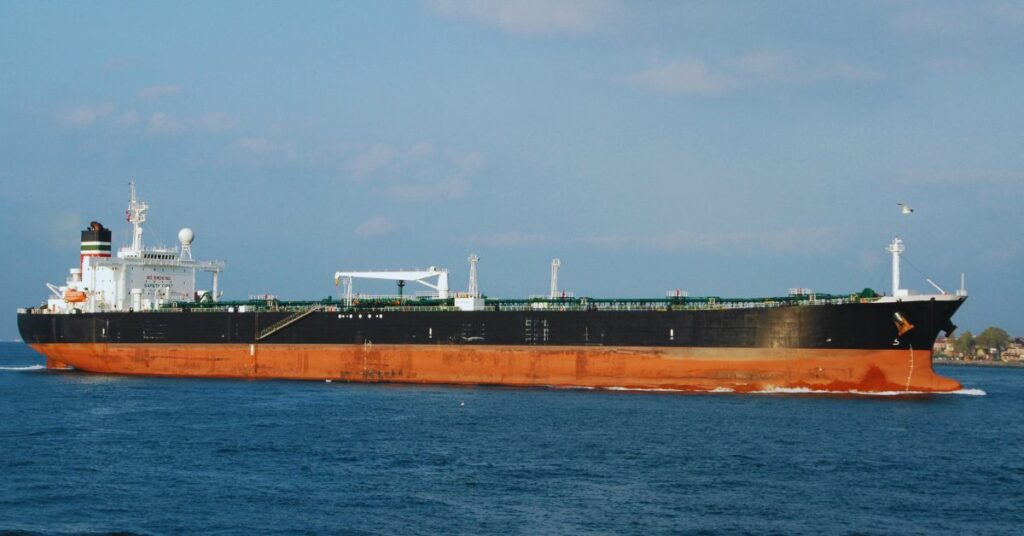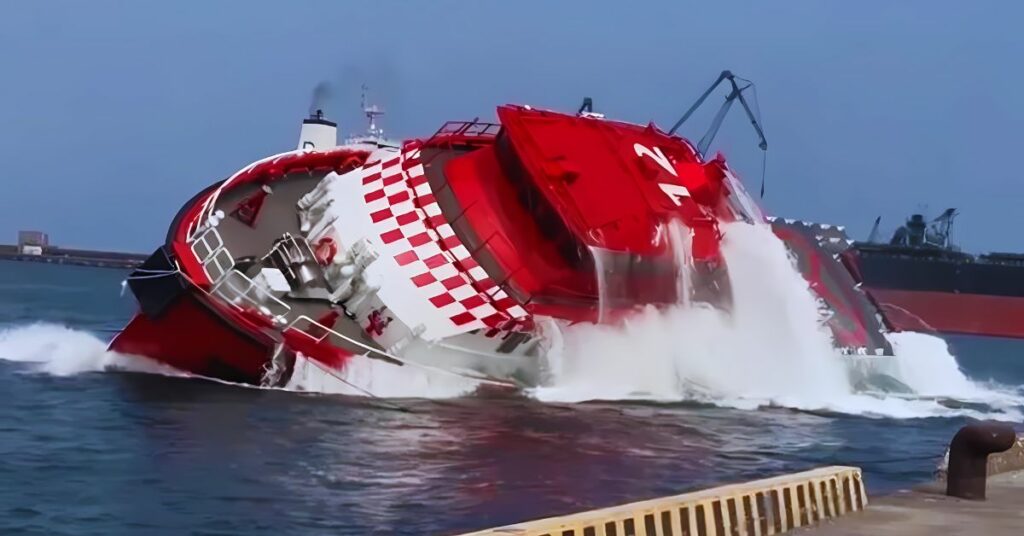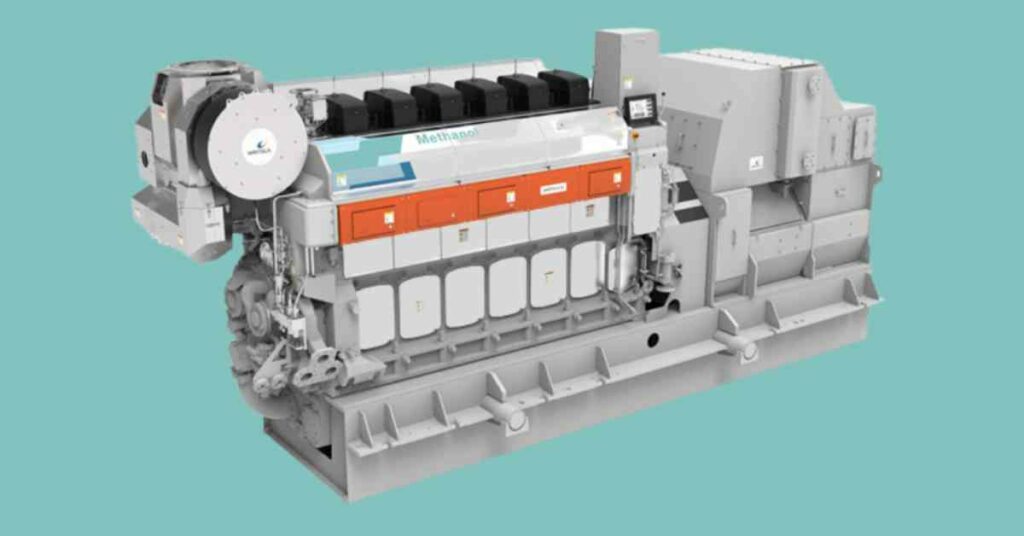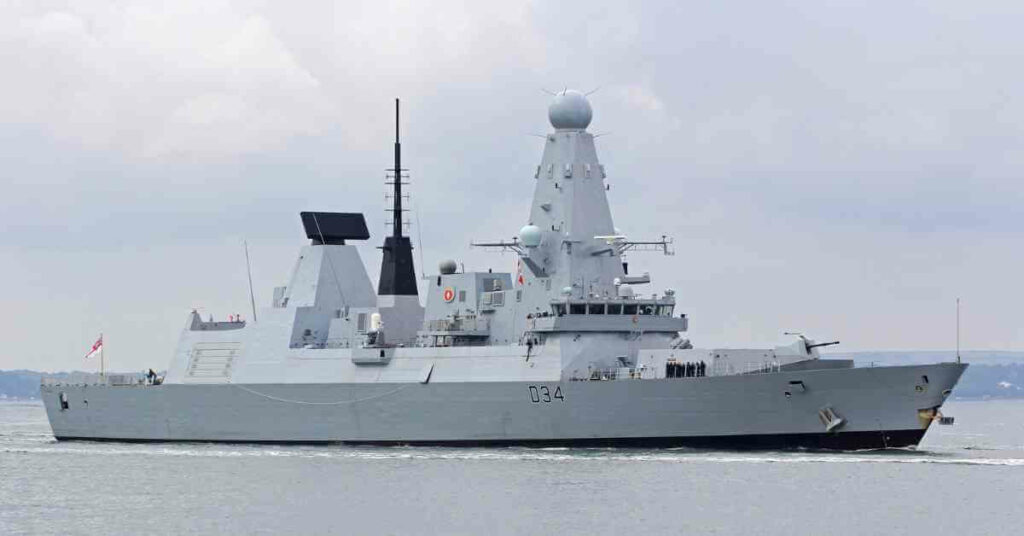Methanol-Fueled Ships Require New Fire Safety Measures, New Study Shows

While the growing interest in methanol-fueled vessels has been growing exponentially as a means of addressing the emissions, new fire safety research reports that the existing fire-fighting methodologies and regulations are not yet ready for methanol vessels.
Per Survitec, which had conducted exhaustive fire tests on the dual-fuel marine engines with diesel oil (abbreviated as the DO) and methanol, existing fire-fighting methods used for extinguishing the machinery space spray and pool fires on conventionally fueled vessels are not adequate when dealing with methanol-based fires.
The tests also confirmed that traditional water mist fire suppression models do not perform as expected on methanol pool and methanol spray fires, explained Michal Sadzynski, the Product Manager of Water Mist Systems at Survitec. Methanol fires are much more aggressive than fires involving conventional hydrocarbon fuels.
Methanol fires tend to have physicochemical properties, so they cannot be extinguished quickly or with the same approach.
Methanol is methyl alcohol (CH3OH). It burns differently than hydrocarbon fuels and has a significantly lower flashpoint of 12°C, per Survitec. They have also reported that the testing has discovered that when the water mist systems are highly effective in absorbing the heat and displacing the oxygen on diesel fires, they do not produce the same results on methanol fires.
Survitec says the concern regarding fire-fighting and protocols may be particularly significant as the shipping industry starts considering converting existing vessels to methanol. At the moment, there are only a relatively few methanol-fueled vessels in service, with a key focus on new builds specifically designed for alternative fuel.
Now, the industry is starting to explore retrofits. Maersk, for instance, has also scheduled the first-ever refit of a huge containership for the summer in a demonstration assignment to take a decade-old vessel that operates on traditional fuels and convert it for dual-fuel methanol operations.
According to the firm, the testing results demonstrate that if existing vessels are retrofitted to operate on methanol, they will need to overhaul and entirely redesign the fixed fire-fighting model.
Sadzynski explained that the tests reflect that the standard discharge devices don’t properly extinguish methanol pool fires in the confined bilge area. He also cites that, as an instance of the issues, the range required for nozzle installation height is significantly lower than that needed to put out a diesel fire. The hour needs to completely reimagine nozzle spacing, placement, and other factors to make water mist suppression effective on the methanol.
Survitec also highlights that while some fire safety regulations and testing standards exist for diesel fuels, precise test mechanisms for alcohol-based fuels such as ethanol and methanol have yet to be developed. According to Sadzynski, this is believed to be a high-risk scenario that requires immediate action.
The firm has been calling on regulators and stakeholders to address methanol’s fire risks and create standards, new testing protocols, and updated stringent safety regulations for methanol.
Reference: Marine Link
Disclaimer :
The information contained in this website is for general information purposes only. While we endeavour to keep the information up to date and correct, we make no representations or warranties of any kind, express or implied, about the completeness, accuracy, reliability, suitability or availability with respect to the website or the information, products, services, or related graphics contained on the website for any purpose. Any reliance you place on such information is therefore strictly at your own risk.
In no event will we be liable for any loss or damage including without limitation, indirect or consequential loss or damage, or any loss or damage whatsoever arising from loss of data or profits arising out of, or in connection with, the use of this website.
Disclaimer :
The information contained in this website is for general information purposes only. While we endeavour to keep the information up to date and correct, we make no representations or warranties of any kind, express or implied, about the completeness, accuracy, reliability, suitability or availability with respect to the website or the information, products, services, or related graphics contained on the website for any purpose. Any reliance you place on such information is therefore strictly at your own risk.
In no event will we be liable for any loss or damage including without limitation, indirect or consequential loss or damage, or any loss or damage whatsoever arising from loss of data or profits arising out of, or in connection with, the use of this website.
Do you have info to share with us ? Suggest a correction
About Author
Marine Insight News Network is a premier source for up-to-date, comprehensive, and insightful coverage of the maritime industry. Dedicated to offering the latest news, trends, and analyses in shipping, marine technology, regulations, and global maritime affairs, Marine Insight News Network prides itself on delivering accurate, engaging, and relevant information.

About Author
Marine Insight News Network is a premier source for up-to-date, comprehensive, and insightful coverage of the maritime industry. Dedicated to offering the latest news, trends, and analyses in shipping, marine technology, regulations, and global maritime affairs, Marine Insight News Network prides itself on delivering accurate, engaging, and relevant information.
Latest Shipping News Articles You Would Like:
Subscribe To Our Newsletters
By subscribing, you agree to our Privacy Policy and may receive occasional deal communications; you can unsubscribe anytime.




